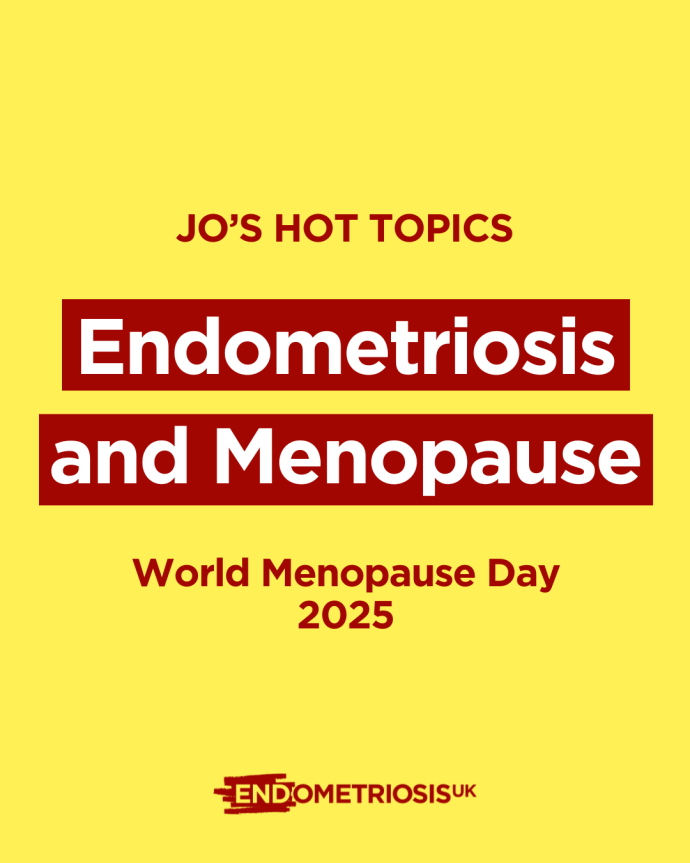Does endometriosis go away with the menopause?
During the perimenopause and menopause, the body produces lower levels of oestrogen until eventually the ovaries stop producing oestrogen altogether. Endometriosis is an oestrogen dependant condition, meaning it’s stimulated by oestrogen. For many, their endometriosis symptoms improve and may even resolve completely with menopause. However, it is possible for endometriosis symptoms to continue post menopause. This is usually when there has been a diagnosis of deep endometriosis, or in cases where endometriosis symptoms have been severe/ debilitating prior to menopause.
Surgical menopause is brought on by having the ovaries surgically removed (a procedure called oophorectomy), this stops the production of oestrogen from the ovaries. As with a natural menopause, it’s likely that endometriosis symptoms may improve, but this cannot be guaranteed. There is a possibility that endometriosis may reoccur, and symptoms may continue. This risk can increase with the use of Hormone Replacement Therapy (HRT).
Medical menopause is brought on by medication, it is temporary and reversible when the medication is stopped. Gonadotrophin Releasing Hormone analogues (GnRHa) stop the ovaries from being stimulated, stopping the production of oestrogen. Endometriosis becomes inactive helping to alleviate symptoms. HRT is recommended alongside GnRHa treatment for the management of menopausal side effects.
Managing the menopause:
Menopausal symptoms can occur naturally with the average age within the UK being 51. A decline in oestrogen can have numerous effects on the body. For many, the menopause can be a relief, especially when there is an improvement to endometriosis symptoms. For others, the menopause can create new symptoms which can have a significant impact on quality of life.
Common symptoms of the menopause are:
- Hot flushes
- Night sweats
- Difficulties sleeping (insomnia)
- Brain fog
- Low mood and/or anxiety
- Vaginal dryness
- Reduced sex drive (libido).
HRT replaces the hormones that the body no longer produces in menopause. The two main hormones used are oestrogen and progesterone. HRT may be recommended by your healthcare practitioner, usually for those who are struggling with menopause symptoms or as a preventative for other health conditions. For those in early menopause (before the age of 50), HRT can reduce the associated health risks of osteoporosis and heart disease, it can also provide neurological protection, reducing the risk of dementia.
Will HRT effect endometriosis symptoms?
Potentially yes, but for many HRT can be beneficial. Oestrogen can activate endometriosis tissue and potentially stimulate growth. It’s important to note that the levels of oestrogen within HRT are lower than what the body would have naturally produced prior to menopause. HRT can be used to treat menopause symptoms and for those with endometriosis, the benefits and risks should be considered. Your GP or Gynaecologist will assess you to determine the suitability of HRT on an individual basis. If endometriosis symptoms reoccur whilst on HRT, then this should be discussed with your healthcare practitioner. HRT treatment can be changed or ultimately stopped.
If you have questions about endometriosis and menopause, our Nurse Helpline team are on hand to help. They cannot give direct medical advice, but can help you talk through your options and provide information to support conversations with your healthcare team.


